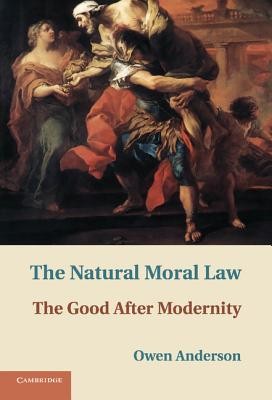
- We will send in 10–14 business days.
- Author: Owen Anderson
- Publisher: Cambridge University Press
- ISBN-10: 1107008425
- ISBN-13: 9781107008427
- Format: 15.8 x 22.9 x 2.3 cm, hardcover
- Language: English
- SAVE -10% with code: EXTRA
Reviews
Description
The Natural Moral Law argues that the good can be known and that therefore the moral law, which serves as a basis for human choice, can be understood. Proceeding historically through ancient, modern, and postmodern thinkers, Owen Anderson studies beliefs about the good and how it is known, and how such beliefs shape claims about the moral law. The focal challenge is whether the skepticism of postmodern thinkers can be answered in a way that preserves knowledge claims about the good. Considering the failures of modern thinkers to correctly articulate reason and the good and how postmodern thinkers are responding to these failures, Anderson argues that there are identifiable patterns of thinking about what is good, some of which lead to false dichotomies. The book concludes with a consideration of how a moral law might look if the good is correctly identified.
EXTRA 10 % discount with code: EXTRA
The promotion ends in 15d.17:04:08
The discount code is valid when purchasing from 10 €. Discounts do not stack.
- Author: Owen Anderson
- Publisher: Cambridge University Press
- ISBN-10: 1107008425
- ISBN-13: 9781107008427
- Format: 15.8 x 22.9 x 2.3 cm, hardcover
- Language: English English
The Natural Moral Law argues that the good can be known and that therefore the moral law, which serves as a basis for human choice, can be understood. Proceeding historically through ancient, modern, and postmodern thinkers, Owen Anderson studies beliefs about the good and how it is known, and how such beliefs shape claims about the moral law. The focal challenge is whether the skepticism of postmodern thinkers can be answered in a way that preserves knowledge claims about the good. Considering the failures of modern thinkers to correctly articulate reason and the good and how postmodern thinkers are responding to these failures, Anderson argues that there are identifiable patterns of thinking about what is good, some of which lead to false dichotomies. The book concludes with a consideration of how a moral law might look if the good is correctly identified.


Reviews